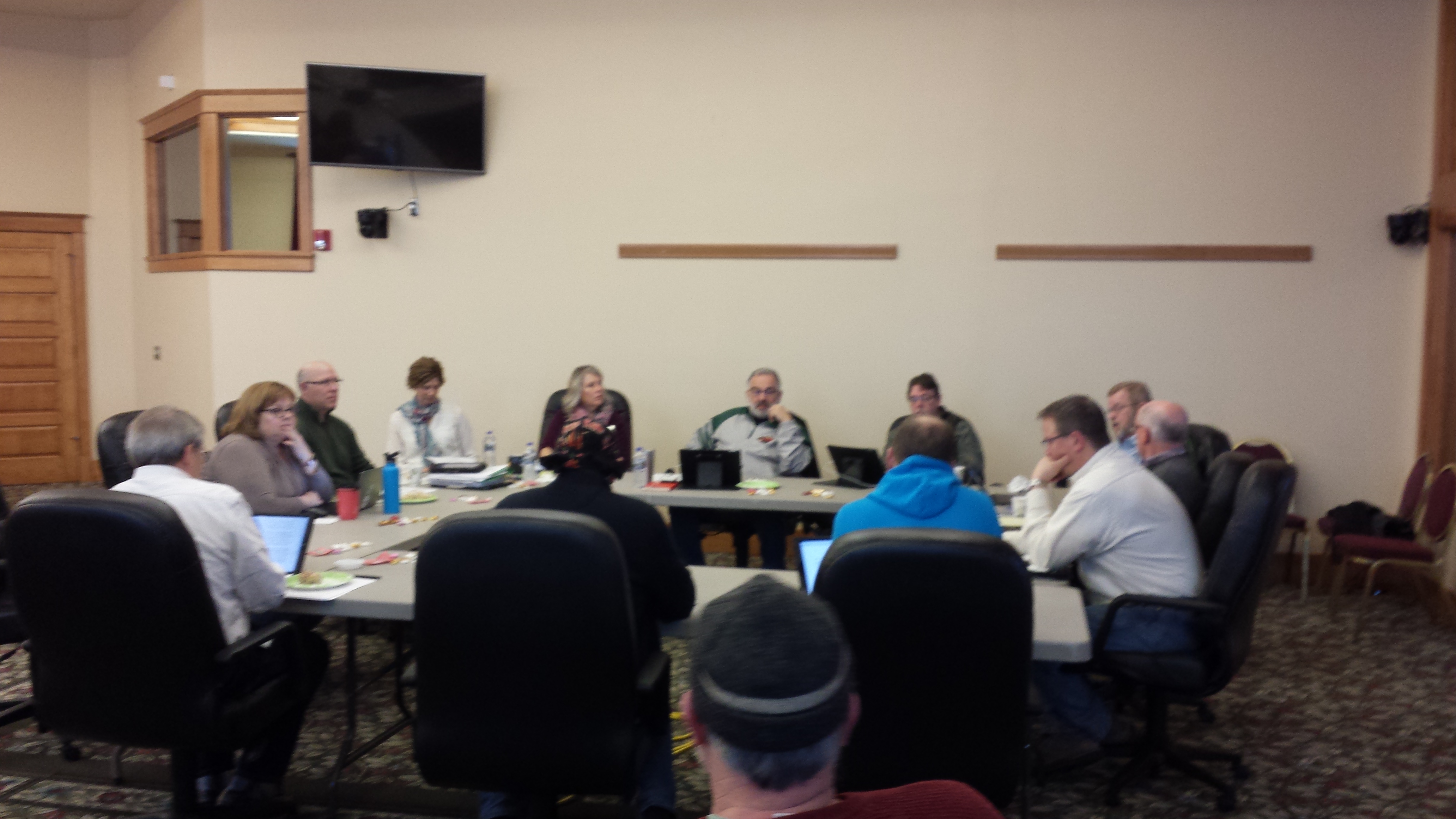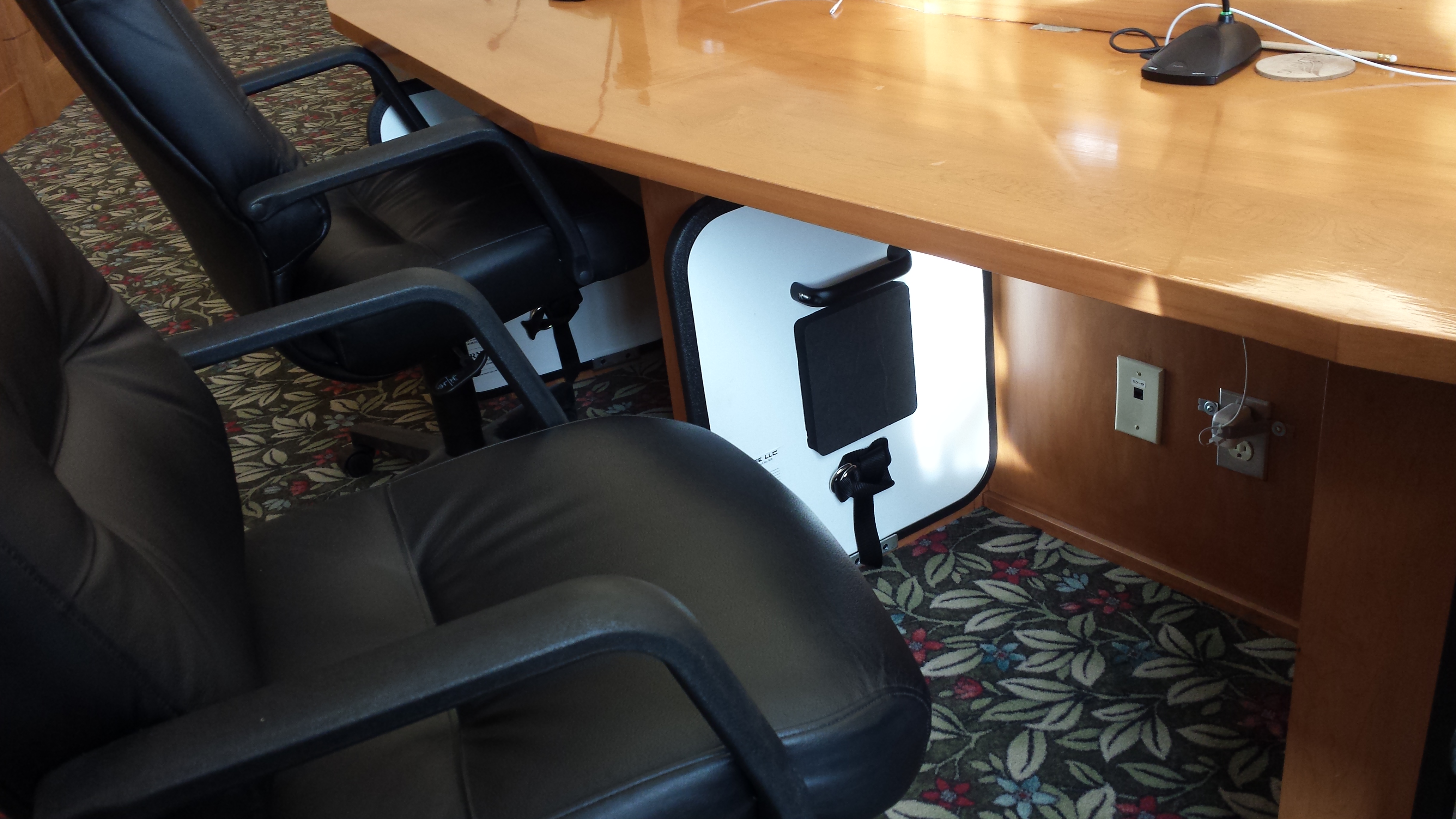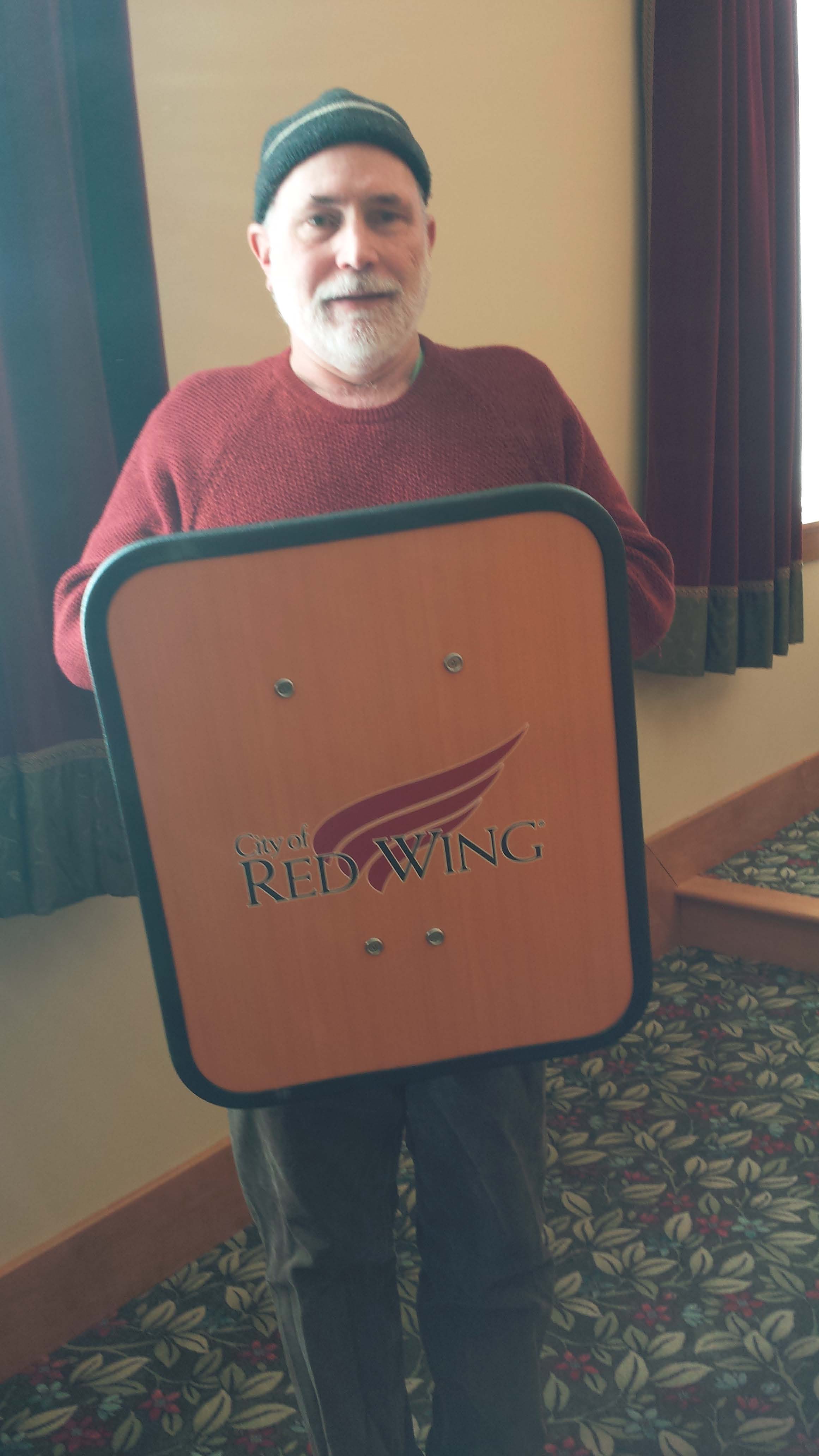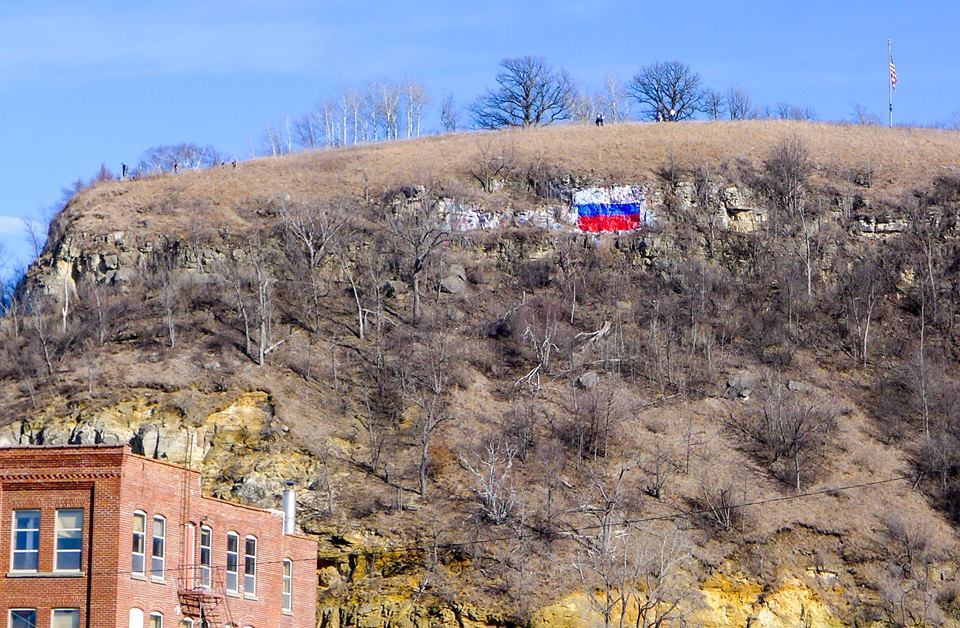Red Wing City Council Workshop
January 27th, 2018

Today the Red Wing City Council started its Day 2 of the Council Workshop, and it was worth going to, but too early o’clock. Getting the last Icelandic Almond Roll was some consolation!
Here is what was part of yesterday’s discussion… really…

What’s that? It’s a shield, under the bench, one for each of the City Council members and staff , to pull out in case of terrorist attack.

Oh well, they already did it, and this was mostly a report on what had been done. Rumor has it that these were about $8,000 each, or $50K+ total… Oh my…
Onward… today first was a discussion of painting on Barn Bluff. I rather enjoy the painting cropping up on the outcrop. But I also hear that this bluff is a sacred Dakota area. I’ve seen the flag on the bluff, it hasn’t been there all that long, and to me, that flag there is inconsistent with respect for Dakota tradition. Flagpole and flag here in upper right hand corner of this borrowed photo:

Today, from the discussion, I learn that the flag was sited right in the midst of a burial area! WHAT?!?! And this is not the first time siting is an issue, probably this happens a lot here, but I do know it was also an issue with the siting of the Red Wing lay down yard, where that Lot and building and storage area was right within the Water Tank Mounds area and that was not fully disclosed during that permitting, nor was the timing of agency involvement and review correctly disclosed during the Ash Mine permitting proceeding. Looks to me like the City has a pattern of inadequate investigation of and respect for Dakota sacred and burial areas. Falling through the holes, being pushed through, how do we fix this, assure it doesn’t keep happening, and make amends?
And then on to the “Public Hearing Process Discussion.” Oh my… Here’s the background from the workshop packet:
Overland’s $0.02: The discussion of civic engagement and “Public Hearing Process Discussion” morphed into a “no public comments on agenda items where there has been a Public Hearing at Planning Commission” as a council policy and taking it off the Council President. NO, not OK. The “No public comments” is bad policy. I note that 2-3 council members felt it was important for the public to be able to address, face to face, the decision makers. YES, it is. And when that is not allowed, it is the job of those council members to stand up for the public!
Today’s discussion, from the packet, was framed in binary, either Option A, where board/commission brings recommendation to Council, “No public input would occur at the Council meeting.” Option B, Boards and commissions have a lesser role in government decisions. Public input often happens at both the board/commission meetings and the City Council meetings.
Note the framing — problematic, as Option A would as policy eliminate public comment at CC meetings on agenda items. NOT OK! Option B frames it as allowing public comment at meetings means “boards and commission have a lesser role in government decision.” NOT OK! The notion that allowing public comment means undermining the Planning Commission is absurd. If there’s crucial determinative “new information,” then it should go back to the Planning Commission with a clear directive, and mindful that the Planning Commission is an “Advisory” Planning Commission, they are NOT the decision makers.
The framing of the options was off, and impact of this framing was to guide toward making it Council policy not to allow comment. NOT OK! Was that intended or not? Who knows… The framing was NOT OK for two reasons, first, public comment should as policy be allowed and encouraged. Second, the decision not to allow public comment has been a decision of the Council President, and he’s accountable for that. NOT OK! I do think that bullet was dodged, and instead a more reasonable Option C, that public comment WILL be allowed, and if Council has issues about what’s proposed, it will go back to Board/Commission. It took a lot of objecting and targeted statements to pull this into encouraging public participation, and not further limiting it as a matter of policy. We shall see…